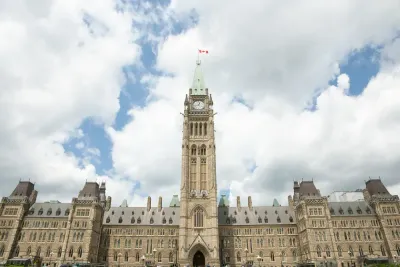Hanke is one of the very few German bishops who have been vocally critical of the Synodal Way, but his tenure has not been without notable instances of dispute and controversy.
(LifeSiteNews) — One of just a handful of German bishops who have criticized the country's controversial Synodal Way has resigned five years early, citing “inner fatigue.”
In a shock move, Bishop Gregor Maria Hanke, OSB, resigned as bishop of the Bavarian Diocese of Eichstätt as of June 8. He will bid farewell to the diocese on July 6.
Writing to his diocese on Pentecost Sunday, Hanke cited the accumulation of fatigue from various crises as the reason for his resignation: “After the many challenges, scandals, and unresolved conflicts that have been part of my time as bishop, I feel a sense of inner fatigue.”
Turning 71 in early July, Hanke’s resignation comes nearly five years before bishops are required to submit a letter of resignation to the Pope. Even at that point, it is increasingly common for bishops to be asked to remain in place for some years while their replacement is found.
Notable not only for being an early retirement, Hanke’s resignation is crucial since he is one of the very few German bishops who have been vocally critical of the Synodal Way in the country.
In September 2022 he was one of eight bishops who opposed a Synodal Way text declaring that “[s]ame-sex sexuality – also realized in sexual acts – is thus not a sin that separates from God, and it is not to be judged as intrinsically evil.” Some 40 of the 56 bishops voted to approve it.
He also opposed a move – again approved by the Synodal Way – to call for women’s ordination.
More recently, he was one of just four German prelates who refused to join the synodal committee in Germany, which was a brainchild of the Synodal Way and was to lead to the creation of a Synodal Council – something which the Vatican also vehemently opposed.
Hanke referenced his concerns about the Synodal Way during his resignation letter. He questioned the efficacy of the Church’s current tactics in Germany:
But to what extent does our 'system' of the Church in Germany prove to be spiritually fruitful, so that it promotes a new beginning from the power of the lived Gospel and serves the sanctification of the world?
The retiring bishop also cited Pope Francis’ 2019 letter to the German Catholics in which Francis warned that the Church in Germany did not have the authority to decide upon matters of doctrine. Such a reference to this text once more served to highlight Hanke’s concern about the drift within his country.
“The Pope gave impetus for a spiritual path that he advised our Church in Germany to take instead of revolving around itself,” Hanke wrote. “According to Francis, renewal means living from the freshness of the Gospel.”
But the outgoing bishop also cited other aspects of diocesan life which have led to his decision. The crisis regarding finances along with his intervention in the controversy regarding the presidential elections in the Catholic University of Eichstätt-Ingolstadt featured.
So also did the topic of sexual abuse. “Even greater damage was caused by cases of sexual abuse by priests,” he said. “My conversations with victims of sexual abuse have deeply shaken me and changed many things within me.”
Hanke himself has been embroiled in a scandal regarding alleged abuse committed by Monsignor Christoph Kühn, and became involved with Kühn when the priest was personally appointed Canon of the Cathedral by the bishop. German reports documented that Hanke was aware of the allegations surrounding Kühn, and had his vicar general warn diocesan staff but did not warn lay faithful in the diocese.
His tenure as bishop of the diocese has hardly been without notable instances of dispute and controversy.
Acknowledging this, Hanke apologized for “leaving behind unfinished business in the diocese, which I hope my successor will tackle together with you.”
No new bishop has been appointed by the Pope as yet, and as Hanke has led the diocese since 2006 his successor will have to deal with the difficulties of assuming a see which has long been under another’s control.
Pope Francis had previously accepted his resignation but left the date as yet undetermined at the time.
Hanke had previously served as abbot of Plankstetten Abbey and has announced his preference to now be known only as “Father,” renouncing all episcopal titles and insignia. This, he said, is part of his desire to be more in touch with the faithful:
The longing to feel the heartbeat of the Church moves me. As a pastor, I want to be close to people, to talk with them about questions of faith and life, to prepare young people to receive the sacraments, and to offer spiritual guidance.
The German Catholic Church has been somewhat in free-fall in attendance and clergy figures – a fact not helped by the Synodal Way. In 2024 just 29 new priests were ordained in the entire country, down from over 550 in 1962.
But the decline of clergy is not isolated as numerous lay faithful are also officially abandoning the Catholic Church in Germany. So far, the measures adopted by the German episcopate appear to have done nothing to stem the tide of collapse.

